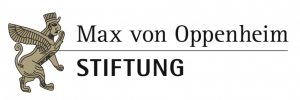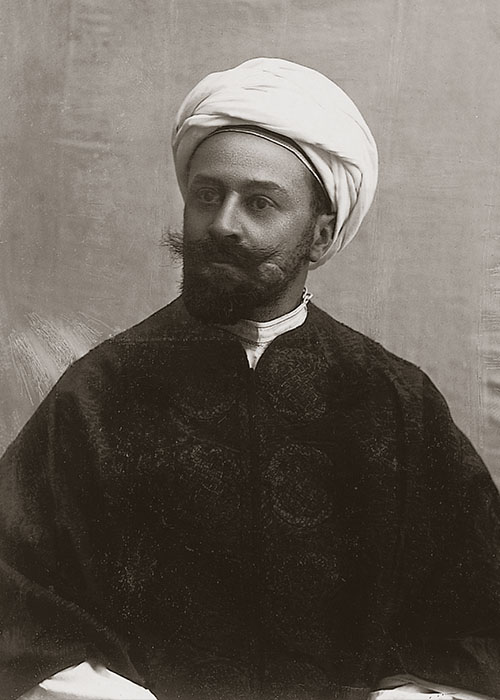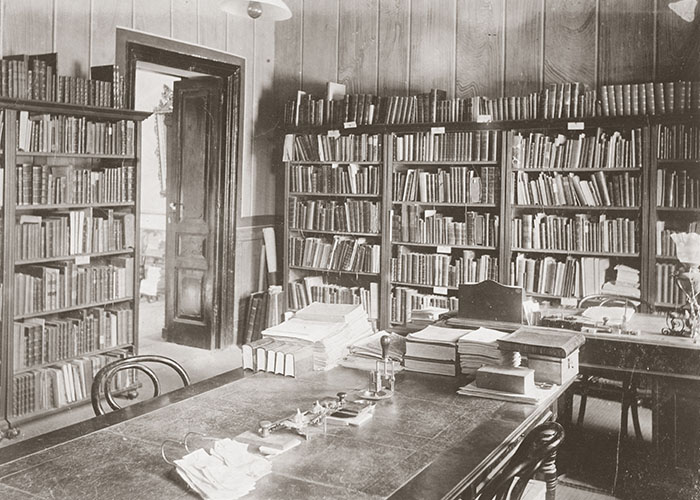
The Library
With over 42,000 volumes, Oppenheim’s library numbered among the largest specialist libraries of his era. Not only does its scope today reflect a collector’s passion for acquiring books spanning decades, but also Oppenheim’s ambition to cover individual thematic areas as comprehensively as possible with monographs, academic periodicals, cartographical works, newspapers, and even magazines.
Photo: Max von Oppenheim’s bookplate


